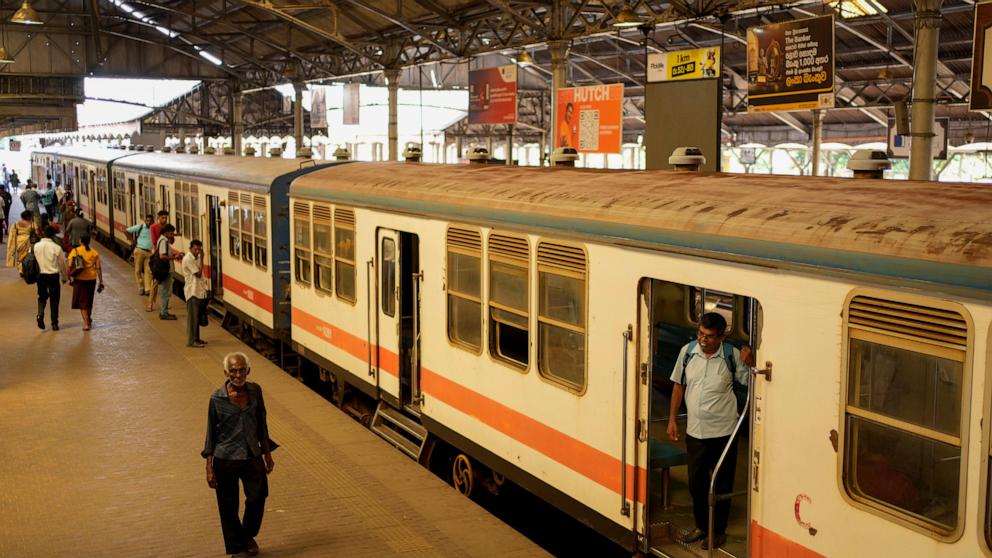A strike by the railway workers’ union in Sri Lanka leaves tens of thousands of commuters stranded

A union strike by railway workers has paralyzed trains across Sri Lanka
COLOMBO, Sri Lanka – A railway workers’ union strike brought most trains across Sri Lanka to a halt on Wednesday, leaving tens of thousands of passengers either forced to venture onto the few dangerously overcrowded trains that were still running or stranded at the station.
The stationmasters’ union had initiated the strike to demand the filling of vacant positions and the resolution of other administrative problems.
The strike caused hundreds of scheduled train journeys to be cancelled on Wednesday, leaving the few trains that did run packed to capacity with passengers. Local television channels showed people risking their lives to get to school or work, barely holding on to the sides of the train and balancing on running boards made slippery by the rain.
Some passengers decided to simply return home.
Anura Samantha, 43, who works as a clerk at a retail store in the capital Colombo, said he decided not to go to work because of the strike.
“It’s really disgusting. I waited for about an hour but couldn’t catch a train. The buses are also overcrowded. Now I don’t have time to go to work. I’m going to take today off,” said Samantha, who comes every day from Gampaha, a suburb about 30 kilometers north of Colombo.
Transport Minister Bandula Gunawardena condemned the strike, saying the union had arbitrarily started the strike when the government was taking steps to address the issues it had raised.
During a similar strike in September, two passengers were killed on overcrowded trains: one was travelling on the roof of a compartment when he hit his head on a railway bridge, and the other succumbed to his injuries when he fell from the train’s running board.
Sri Lanka’s rail service is substandard. The carriages and tracks are poorly maintained due to years of mismanagement and lack of planning. Frequent and sudden strikes have made the situation worse, with most trains running late.



